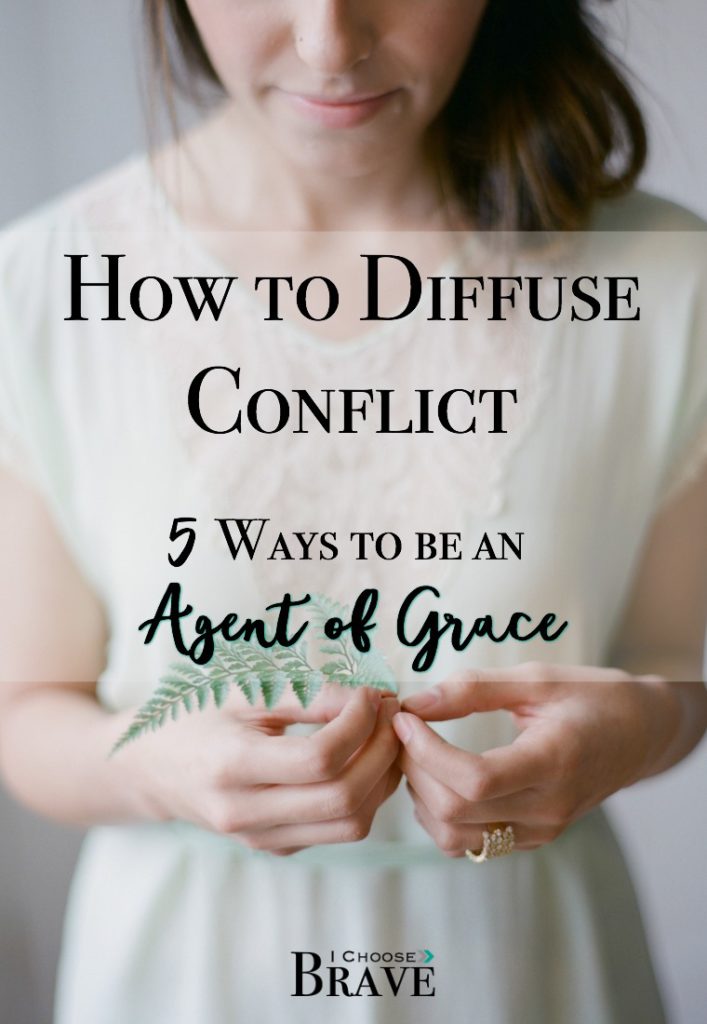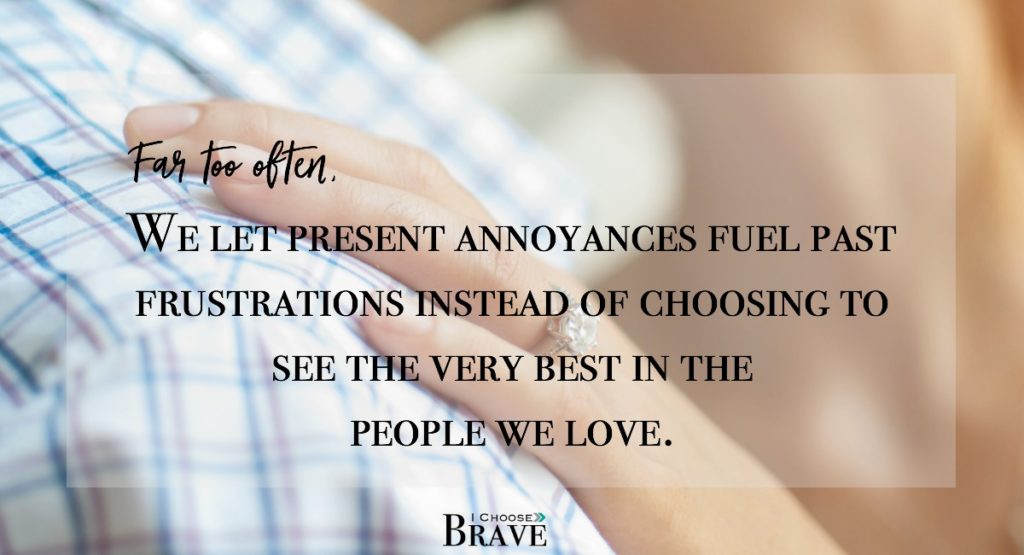This post may contain affiliate links. Please read our full disclosure policy here.
I still remember the first time I walked into my sister-in-law’s home. It was new. I’m sure it was clean. But neither of those were the lasting impression that stuck with me. I remember her house smelled lovely.
After staying with her a few days I asked about it, “How does your house smell so good all of the time?” And she proceeded to show me the little diffusers she had tucked into a few outlets throughout her home.
That was more than a dozen years ago. I had never seen such things before. But I knew right away, I wanted diffusers. I wanted them tucked into just the right spots of my home – just enough faint scent to linger, spread warmth, invite in.
I’ve been buying diffusers ever since.
Recently, during a minor conflict, I watched emotions charge in quick and play out right in front of me. Change – it doesn’t always go over so well. There is always someone who doesn’t think it is necessary, some who don’t think it is warranted. And sometimes, even the most beautifully rational people simply don’t agree.
Tell me you’ve been there. Beautifully rational. And disagreeing.
So what are we left to do? What are you to do when a friend calls frustrated with her husband and asking your opinion? What are we to do when co-workers raise issue over obvious unfairness and would love for us join in the battle? What are we to do when people we care about spill out big and real emotions and we feel a little caught in the middle…a little conflicted.
Quite often the best response is to make like those scented plug-ins and diffuse.
Really. As Lysa TerKeurst says (her latest book is one of the best I’ve read ALL year, by the way) we have the perfect opportunity to be an “agent of grace” in these situations. We can identify with frustrations, no doubt, but at the same time we can offer a different vantage point, overlooked insights and the grace of an even keel. We have the choice to let our comments add fuel to the fire or instead, become a diffuser and help quench the flames.
We are called to be peacemakers. That is an active word. So what might that look like in the tensions of everyday?
Hold your tongue
Quick to listen, slow to speak. So often we respond quickly when something doesn’t feel fair or right, when we are frustrated by change or we think something is a bad idea. We hurt when our friends hurt so we join in the banter and react quickly. I hate to admit how many times I’ve responded before properly sorting through my thoughts. Hold your tongue when your friend is asking for advice. Be honest when you are processing and buy yourself time to with words that give life.
Speak up
Contradictory, huh? In some situations where misinformation is spreading rampantly, speaking up quickly and gracefully is a simple way to diffuse. (Proverbs 15:23) But tread carefully, you’re walking in emotional territory. Agents of grace don’t walk into most situations with guns blazing. Offer up truth with a dose of humility and it is more likely to be well received.
Choose to believe the best
We don’t always do this, do we? When our neighbor, that family member, that friend who often gets on our nerves, does it yet again, we choose to let it stoke the fire. “Typical. She always does that!” We let present annoyances fuel past frustrations instead of choosing to see the best in the people we care about. What if taking every thought captive looks like replacing frustrations with truth? What if we took every annoying thought and replaced it with the very best we could believe about our neighbor, our mother-in-law, our friends, our husband? How much would we appreciate the people we care about doing the very same for us – replacing our shortcomings with the very best of what they see in us?
Pick your battles
There is so much that isn’t worth being annoyed about. So your friend is late. Again. Your husband isn’t helping with the kids enough. Again. You’re asked to step into a new role at work. Again. Sure there are hills worth dying on, but often times we choose the wrong ones. Or we choose to die on every hill. Fighting to see the good helps us choose our battles wisely. Choosing our words (and our battles) carefully and using them wisely increases their value. Don’t be a resounding gong; pick your battles.
Understand that you are conduit
In your family, amongst your friends, in your church, at your work place and in your child’s school, you are conduit. Expectations, emotions, reactions and opinions all feed through you. What exactly are you passing on?
The school board will do something that leaves people up in arms. A family member may step out of line or offend someone. Your church may make a change you don’t agree with. This is real life, the opportunities to be annoyed are endless. And you play an important part in how these annoyances roll out. Will you feed the fire? Will you ignite and lay blame, rally the troops and fuel tempers. Or will you diffuse? Will you press pause while you gather your thoughts, ask for His wisdom and discern how you might be a peacemaker in this moment?
Look about. There is always more than enough fuel for fires, flammable bits just lying in wait. But when you get that next frustrating text or phone call, when your friend spills out her very justifiable frustrations with her spouse or mother-in-law, pause for a moment and think how can I choose my words carefully here? How can I be a diffuser and leave a lingering trail of grace in my wake?
What a beautiful thing to be known for. Don’t you think?




I have a question, because I believe in what you are teaching and have practiced it many times and saw amazing results. Recently I visitng my daughter and her husband out of State. They have two children and practice being Seik. My daughter who is in her mid 30’s began to correct most of my statements, and I intuitively knew I just needed to be quiet and not talk much. Then I asked my daughter to go with me to my a family get together on the last weekend I was to be visiting, but she declined as always. Then when the oldest child a toddler was misbehaving and she had disciplined him, I was trying to explain to him, and she stopped me in front of my grandson and told me not too. After my grandson repeatedly disrespected me, I felt uncomfortable and awkward. I left her home the following day, and she was crying and did not want me to leave. She wanted to discuss things, but I declined at that moment as I felt in her home was not a neutral place and did not feel that I would be heard. I later texted her what I was feeling, but she has not wanted to return any messages. So I am leaving it alone, but was wondering If there may have been a better way to have handled this?
A MOM in Tennessee
Jacque, the fact that you are asking this question is beautiful and shows you are truly seeking to do this well. I could suggest that text messaging is sometimes not the best way to convey our feelings or maybe recommend that you not leave when things were tense, but the truth is I don’t know all of the details. What I do know is this – we can mess relationships up. We can mess up conflict and grace, we can mix up when to shut our mouths and when to speak up and even so, our God is in the business of restoring and redeeming everything and that is the truth here. Even with the best of intentions, relationships get messy, but reconciliation is a gift. Keep praying that you’ll have an opportunity to tell your daughter how much you love her and that she will receive those words. I’m praying for you this evening as well. Thank you for bravely asking. <3
“Agents of grace don’t walk into situations with guns blazing” This spoke volumes to me and it was right on time. Here I was going over a situation that is causing continual grief in my family and I was contemplating doing some confronting today. This stopped me. Your post stopped me. I’m in a hurt/angry mood and that confronting probably will do more harm than good. Thank you so much for your wisdom. You helped me today 🙂
I love that these words found you when you needed them, Natalie. Confrontation isn’t a bad thing but you are wise to wait for those tough emotions to settle a little. That’s not an easy thing to do, but it’s brave. <3